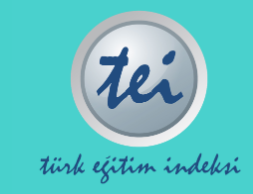About the Journal
Pedagogical Perspective (PedPer) is an international, non-profit, double-blind, peer-reviewed journal that publishes original research and scholarly syntheses to advance evidence-informed teaching and learning across educational contexts. The journal’s distinctive focus is on studies that connect pedagogical theory with classroom practice and demonstrable learning outcomes, offering clear implications for educators, teacher education, and education stakeholders. PedPer welcomes interdisciplinary work that strengthens educational practice through rigorous quantitative, qualitative, or mixed-methods research. View All.
- Journal Title: Pedagogical Perspective
- Online ISSN: 2822-4841
- Publisher: Erhan Yaylak
- Founding Year: 2022
- Country: Türkiye
- Publication Frequency: Biannual
- Publication Schedule: March October
- Article Submission: Article submission open
- Submission Locales: English
- Default Review Mode: Anonymous Reviewer/Anonymous Author
- Publishing Mode: The journal will provide open access to its contents.
- Payments: APC fees are not required
- License: CC BY 4.0
- Copyright Holder: Authors
- Archiving: OAI LOCKSS CLOCKSS
- DOI Prefix: 10.29329
- Indexing: ERIH PLUS Türk Eğitim İndeksi H. W. Wilson Education Ulrichweb Ebsco Miar Google Scholar Crossref
- Editorial Team
- Submissions
- Contact
Current Issue
Vol. 4 No. 3 (2025): Advancing Teacher Training in the Digital Age – TSTT 2025 Conference Special Issue
This special issue includes research presented as oral presentations at the "Advancing Teacher Training in the Digital Age TSTT 2025 International Conference " conference held at Prague Karlova University on 30-31 May 2025.
Issue Editors:
The countries of the authors contributed to this issue (in alphabetical order): Czech Republic, Italy, Kazakhstan and Türkiye
Full Issue
Search in
Discover scholarly content by searching through articles, journals, and authors across the platform.

Explore the Content
Take a quick and comprehensive look at the scientific content on the site through key figures.







